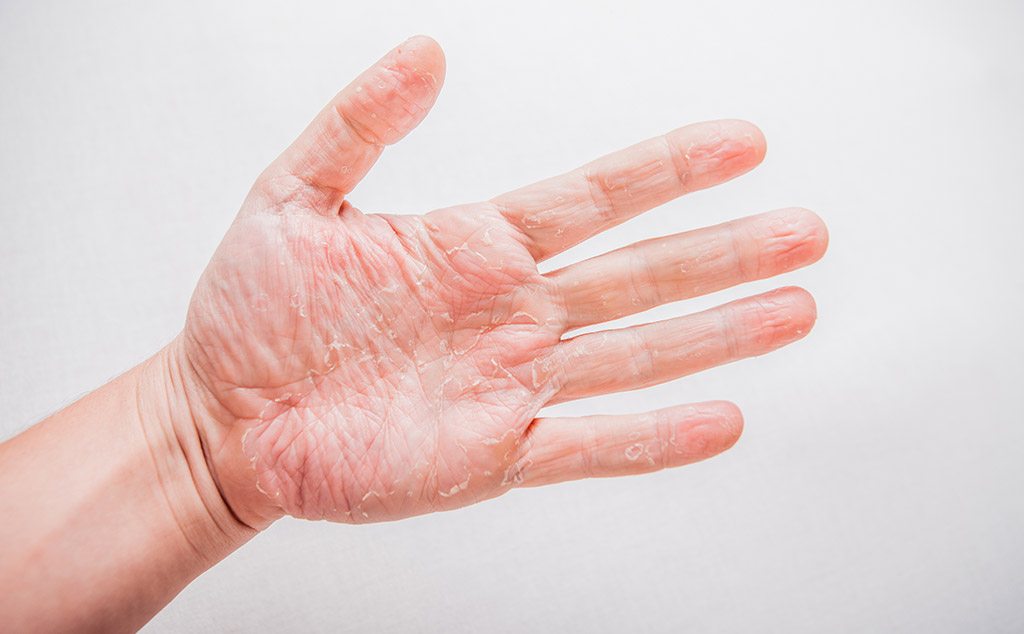If you are among the 35 million Americans who are afflicted with “the itch that rashes,” then you know just how miserable it can be to have eczema. People who have this troubling skin condition are subject to terrible itchiness and self-consciousness over the way they look. Fortunately, the disorder can be treated, and it is also possible to reduce the frequency and severity of flare-ups.
What Causes Eczema?
Inflammation is the root cause of this and related skin disorders. You may also hear of the condition being referred to as “atopic dermatitis.” “Atopic” conditions also include allergies and asthma, and they can run in families.
How Eczema Affects Daily Life
This annoying skin condition can negatively impact your life in numerous ways. When the itching is particularly severe, sufferers may lose sleep and have to call in sick to work or school. Many people are also made uncomfortable by the way they look when they have a flare up. This may cause them to avoid certain activities like going to the beach or joining a sports league. The disorder can even dictate how you dress. With so many limitations, it’s no wonder that some people decide to just stay home.
Between 10 and 20 percent of infants and three percent of adults experience symptoms of the disorder. The condition initially manifests in infants. And many children grow out of it, though some people will end up fighting eczema throughout their life. If eczema still crops up in adulthood, it’s likely that the individual will have to be vigilant against flare ups for their remaining lifespan.
Can Eczema Be Cured?
No cure for eczema has yet been discovered, which means that patients must learn to cope with the condition. The first step is to receive a definitive, medical diagnosis similar to with any other medical skin condition. Most people seek the advice of a dermatologist after dealing with red, itchy skin on their own for far too long. The itching often begins first, with the rash appearing later. The most frequent parts of the body that are affected by the disorder are the inside of the elbows, the back of the knees, the hands, and the face. However, the rash may appear elsewhere.
Particularly severe cases may be accompanied by patches of thickened, scaly skin. Oozing may be another symptom of an eczema flare up. Occasionally, pigmentation changes may occur in darker-skinned individuals.
Diagnosing Eczema
Your dermatologist can provide you with a diagnosis by examining your skin and asking a few questions. If you are subject to allergies and asthma, this also may be a sign that you are suffering from “the itch that rashes.” A series of allergy tests may be ordered to determine which triggers might cause your skin condition to flare up.
Eczema Triggers
People are often troubled when they hear that this disorder cannot be cured. Nonetheless, it is comforting to learn what your triggers are as this enables you to manage the condition. Triggers are highly individualized and vary between people. Wearing a certain fabric may cause a flare up, and so may a particular soap or laundry detergent. Some people experience a flare up when they get too hot or too cold while others may be made miserable by contact with pet dander. Even enduring a period of unusually high stress can worsen the condition. Once you have identified your triggers, you can begin to manage the disorder.
Eczema Treatment
While in the midst of a flare up, patients are eager for quick relief. The most common treatment involves the application of ointments and moisturizing creams. Doctors recommend applying ointments, lotions or creams immediately upon completing a bath or shower, though it may be necessary to reapply these products once or twice more throughout the day. Over-the-counter products containing rich emollients or hydrocortisone may bring sufficient relief for some. Others may require prescription strength products to deal with flare-ups and to prevent them from recurring.
Oral antihistamines may be taken to help deal with itching. Over-the-counter versions can be effective, though some people may need to ask for a prescription-strength medication.
Preventing Eczema Flare-Ups
Once a current flare up is under control, the focus turns to preventing another one. The frequent use of rich moisturizers is imperative. In all seasons and conditions, the application and continued use of ointments and lotions is key to maintaining the skin’s moisture barrier and preventing flare-ups. Similarly, it is advised to buy soaps, detergents and household cleaners that are non-irritating. Getting sweaty and overheated can be bad news for someone with eczema. Certain coarse or scratchy materials should be avoided when choosing clothing and linens. Making sure you have the best skin care regimen possible is also imperative.
Living With Eczema
This common skin disorder can have a negative effect on your lifestyle, causing you to avoid social and public situations. What’s more, just having to deal with the symptoms of this condition can add to your stress level, bringing it to an unmanageable limit. That’s why it’s critical to work with a board-certified dermatologist who can diagnose your condition and help you to identify your triggers. You’ll also receive advice concerning good skin care techniques and lifestyle changes you can make so that you can successfully cope with the disorder.
Don’t let itchy, red skin rule your life. Contact a dermatologist for a consultation today so that you can look forward to a brighter, more comfortable tomorrow.

